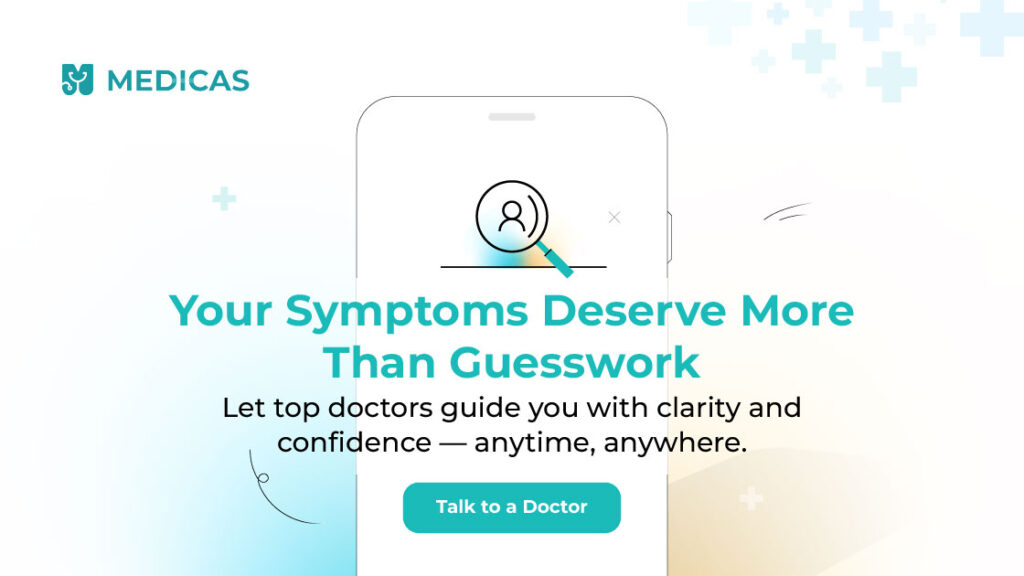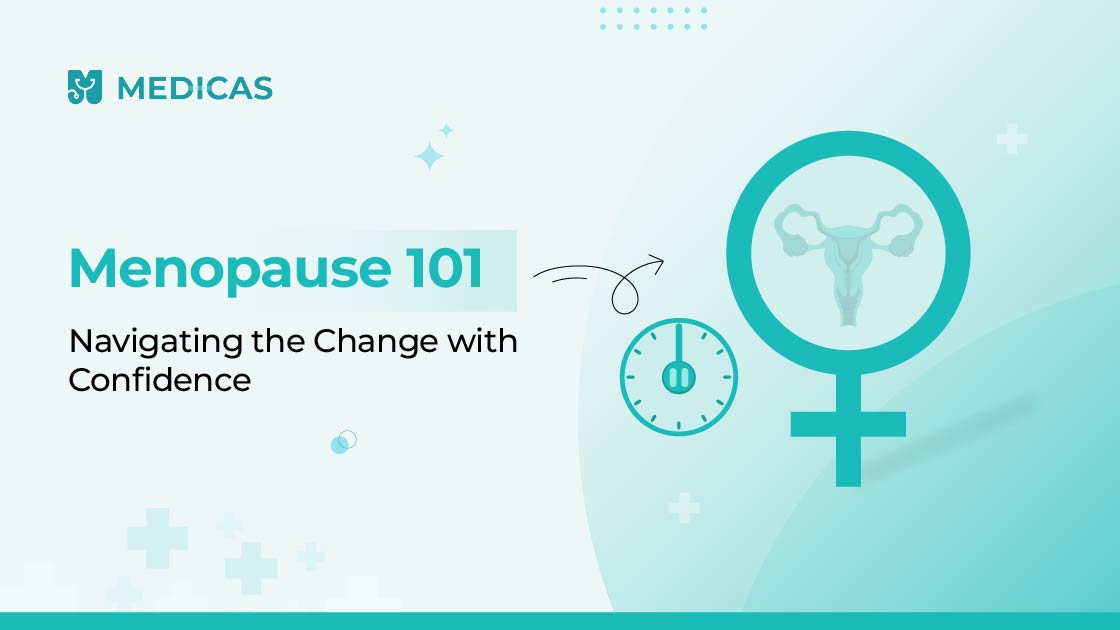As a gynaecologist who has spent many years walking alongside women through the profound changes of menopause, I’ve witnessed firsthand the complex mix of emotions this transition can bring—confusion, frustration, uncertainty, but also empowerment and resilience. Menopause is not just a medical phase; it’s a deeply personal journey that marks the closing of one chapter and the bold opening of another. I often tell my patients, “Menopause isn’t the end of your story; it’s the start of a vibrant new narrative, one where you can take charge with knowledge and self-compassion.”
Every woman’s experience with menopause is unique, shaped by her body, lifestyle, and personal circumstances. Yet, so many share the same questions: Why do I feel this way? What’s happening to my body? How can I feel like myself again? My goal is to demystify this natural stage of life, helping you understand the symptoms, recognise the early signs, and explore the wide range of treatment options available. From hot flashes and mood swings to changes in sleep and energy, I’m here to guide you through what to expect and how to manage it all with confidence and grace.
In my practice, I’ve seen women transform their menopause experience by arming themselves with information and embracing holistic strategies that nurture both body and mind. Whether you’re just beginning to notice perimenopausal changes or are navigating the full spectrum of menopausal symptoms, this guide is for you. Let’s dive into the world of menopause—exploring its symptoms, treatment options, and practical tips to help you thrive during this remarkable phase of life.
What Happens to the Body During Menopause?
Menopause is a profound transition, signaling the end of menstrual cycles and a shift in hormonal balance. As a gynecologist, I’ve seen women embrace this phase with resilience when armed with knowledge. Declining estrogen and progesterone cause menopause symptoms like hot flashes, menopause and weight gain, and menopause and skin changes. These reflect a hormonal imbalance in women, impacting body and mind. The menopause age range typically spans 45–55, but early menopause can occur. Understanding these changes is empowering. Let’s explore what happens in the body and how to navigate this journey with vitality and confidence.
Estrogen and Hormonal Changes
Menopause is primarily a hormonal event. As you approach your late 40s to early 50s, your ovaries produce less estrogen and progesterone, hormones that regulate menstruation and overall reproductive health. This hormonal imbalance in women triggers many of the menopause symptoms we often hear about — from hot flashes to mood changes.
Physical and Emotional Shifts
The physical effects range from changes in menstrual cycle patterns to menopause and skin changes like dryness and increased wrinkles. Emotionally, menopause and mental health are deeply interconnected. Anxiety, depression, and mood swings can become more prominent as hormonal levels fluctuate.
When Do Menopause Symptoms Start?
Menopause age range typically falls between 45 and 55 years. However, early menopause can occur before 40, often due to genetics, autoimmune conditions, or surgical removal of ovaries.

Understanding Perimenopause
Before menopause, perimenopause ushers in a period of transition that can catch many women off guard. As a gynecologist, I help women recognize the signs of perimenopause, such as irregular periods, mood swings, and early signs of menopause. These stem from fluctuating hormones, often starting in the 40s but sometimes earlier in cases of early menopause. Menopause symptoms like hot flashes or menopause and weight gain may emerge, signaling a hormonal imbalance in women. Understanding perimenopause equips you to manage this phase proactively. Let’s dive into what defines this stage and how to embrace it with clarity and strength.
Early Signs of Perimenopause
Perimenopause precedes menopause by several years and can bring its own set of challenges. Early signs of perimenopause include irregular periods, hot flashes, sleep disturbances, and mood swings. You may even notice subtle menopause and weight gain during this stage.
Difference Between Perimenopause and Menopause
Perimenopause refers to the transitional years leading up to menopause, where hormone levels fluctuate but periods haven’t stopped entirely. Menopause is officially diagnosed when you’ve gone 12 months without a menstrual cycle.
Duration and Progression of Symptoms
Perimenopause can last anywhere from 4 to 10 years. Some women experience mild symptoms; for others, they can be quite disruptive. Tracking symptoms during this period is essential to understand patterns and seek timely menopause doctor consultation if needed.
Common Menopause Symptoms to Watch For
Managing menopause symptoms can transform your experience of this life stage. As a gynecologist, I’ve seen menopause treatment options like hormone replacement therapy (HRT) relieve hot flashes, menopause and skin changes, and menopause mental health struggles. Lifestyle changes, menopause supplements (e.g., black cohosh), and dietary adjustments also help address menopause and weight gain or hormonal imbalance in women. For some, alternative therapies like acupuncture complement conventional approaches. Whether in perimenopause or post-menopause, tailored solutions exist across the menopause age range. Let’s explore these options to help you find relief and thrive with confidence during this transition.
Hot Flashes and Night Sweats
Hot flashes — sudden feelings of heat, sweating, and rapid heartbeat — are the hallmark signs of menopause. They can occur multiple times a day and even disrupt sleep.
Mood Swings and Depression
Hormonal shifts significantly impact menopause mental health. It’s not uncommon to feel irritable, tearful, or even experience bouts of depression. This emotional turbulence often raises the question: “Does menopause cause anxiety and depression?” The answer is yes, but timely intervention can help.
Sleep Issues and Fatigue
Sleep problems during menopause, including insomnia and frequent night waking, are common. Fatigue naturally follows, affecting daily energy and productivity.
Changes in Libido and Vaginal Dryness
A decrease in estrogen leads to vaginal dryness, discomfort during intercourse, and a drop in libido. Open communication with your partner and your doctor can help you manage these changes.
Treatment Options for Menopause Symptoms
Managing menopause symptoms can transform your experience of this life stage. Over the years, I’ve personally seen menopause treatment options like hormone replacement therapy (HRT) relieve hot flashes, menopause and skin changes, and menopause mental health struggles. Lifestyle changes, menopause supplements (e.g., black cohosh), and dietary adjustments also help address menopause and weight gain or hormonal imbalance in women. For some, alternative therapies like acupuncture complement conventional approaches. Whether in perimenopause or post-menopause, tailored solutions exist across the menopause age range. Let’s explore these options to help you find relief and thrive with confidence during this transition.
Hormone Replacement Therapy (HRT)
Hormone Replacement Therapy remains a gold standard menopause treatment for many women. It involves supplementing estrogen (and sometimes progesterone) to relieve symptoms like hot flashes, vaginal dryness, and osteoporosis prevention.
However, HRT isn’t for everyone. Discuss risks and benefits thoroughly during your menopause doctor consultation. You can book an appointment with me for personalized advice.
Natural Remedies and Lifestyle Adjustments
If you’re wondering how to manage menopause symptoms without HRT, you’re not alone. Many women opt for natural remedies for menopause such as:
- Herbal supplements (after consulting your doctor)
- Mind-body practices like yoga and meditation
- Acupuncture for symptom relief
Diet and Exercise Tips to Reduce Symptoms
Certain foods that help with menopause symptoms include:
- Soy-based foods (rich in phytoestrogens)
- Leafy greens
- Omega-3 rich fish
- Nuts and seeds
Meanwhile, foods to avoid during menopause include spicy foods, alcohol, and caffeine, as they can worsen hot flashes and sleep disturbances.
Regular exercise not only helps manage menopause and weight gain but also uplifts menopause mental health.
When Should You See a Doctor?
If your symptoms significantly affect your quality of life, it’s important to seek help. Issues like heavy bleeding, severe mood disturbances, or persistent pain shouldn’t be ignored.Knowing when to seek a menopause doctor consultation can make all the difference in managing menopause symptoms. Early menopause or persistent menopause and weight gain may also warrant evaluation for hormonal imbalance in women.
Online Doctor Consultation for Menopause
You can easily consult an online doctor for menopause from the comfort of your home. Virtual consultations are safe, effective, and incredibly convenient. If your doctor feels that your symptoms require physical evaluation or tests, they will guide you to visit a clinic in person. However, for most first-line consultations, an online consultation through trusted platforms like Medicas is often more than sufficient to give you peace of mind, clarity about your symptoms, and a clear path forward. If you’d like to speak with me directly, you can book a consultation here via Medicas.
How to Prepare for Your First Appointment
Before your consultation, track your symptoms (how to track menopause symptoms effectively can be through apps or a diary), note changes in your menstrual cycle, and list all your medications and supplements.
Menopause and Mental Health
Menopause and mental health are deeply intertwined, often catching women unprepared. In my practice, I see patients grappling with anxiety, mood swings, or brain fog—common menopause symptoms driven by hormonal imbalance in women. These can emerge in perimenopause or the menopause age range (45–55), sometimes earlier in early menopause. Menopause mental health challenges, compounded by menopause and weight gain or sleep issues, deserve attention. Menopause treatment options like hormone replacement therapy or menopause supplements can help, alongside mindfulness practices.
Breaking the Stigma Around Menopause
Society often portrays menopause as the end of youth or vitality. But menopause is a natural phase, a testament to a woman’s journey, strength, and adaptability.
Let’s talk openly about menopause symptoms, seek support, and celebrate this powerful transition instead of dreading it.
Menopause is a natural milestone, yet stigma often shrouds it in silence. Society often portrays menopause as the end of youth or vitality and this cannot be further from the truth. We must all come together to break the taboo and empower each other to openly discuss menopause symptoms like hot flashes, menopause and skin changes, or menopause and mental health challenges. Whether in perimenopause, the menopause age range, or early menopause, women deserve support, not judgment. By sharing knowledge about menopause treatment, hormone replacement therapy, and menopause supplements, we normalize this phase. Let’s challenge myths, foster open conversations, and celebrate menopause as a powerful transition, helping women embrace it with confidence and community.
Conclusion
Menopause is not an illness. It is a transformation. With the right information, supportive care, and proactive management, you can navigate this transition confidently.
Whether it’s exploring menopause supplements, learning natural remedies for menopause, or considering hormone replacement therapy, always remember: You are not alone.
If you would like personalized advice on managing your symptoms or planning your care, you can book a consultation with me here.Explore more home remedies or book lab tests easily online to stay in tune with your health.
Frequently Asked Questions
- How long do menopause symptoms last?
Typically, menopause symptoms last between 4 to 7 years, but for some women, they may linger longer. - Is there a test to confirm menopause?
Yes, blood tests measuring FSH (Follicle-Stimulating Hormone) levels can help confirm menopause, though diagnosis is often clinical and based on symptoms. - What are the best supplements for menopause relief?
Calcium, vitamin D, magnesium, omega-3 fatty acids, and certain herbal supplements (like black cohosh) are considered beneficial. Always consult a doctor before starting new supplements. - Does menopause cause anxiety?
Yes. Hormonal fluctuations during menopause can trigger anxiety. Early recognition and support are key. - What are some tips to sleep better during menopause?
Establish a bedtime routine, avoid caffeine late in the day, practice relaxation techniques, and keep your bedroom cool. - Can I manage menopause symptoms without HRT?
Absolutely. Many women manage symptoms naturally through lifestyle changes, herbal remedies, and dietary adjustments. - What are menopause symptoms after a hysterectomy like?
Women who undergo a hysterectomy—especially with ovary removal—may experience sudden and more intense menopause symptoms. - Are there foods to avoid during menopause?
Yes. Spicy foods, caffeine, alcohol, and processed sugars may worsen hot flashes and mood swings. - How to relieve menopause symptoms naturally?
Regular exercise, a balanced diet rich in phytoestrogens, stress-reduction techniques, and medically-approved herbal therapies can help. - What are the best herbal remedies for menopause symptoms?
Black cohosh, red clover, and evening primrose oil are popular choices. However, consult a doctor before use.
Related Blogs
Disclaimer
Medical Advice: The information provided in this blog post is for educational purposes only and should not be considered as a substitute for professional medical advice, diagnosis, or treatment. Always consult with a qualified healthcare professional for personalized guidance regarding your specific medical condition.
Accuracy of Information: While we strive to provide accurate and up-to-date information, the field of medicine and viral fevers is constantly evolving. The content in this blog post may not reflect the most current research or medical guidelines. Therefore, it is advisable to cross-check any information provided with reliable sources or consult a healthcare professional.
Individual Variations: The symptoms, causes, treatment options, and preventive measures discussed in this blog post are general in nature and may not apply to everyone. It is important to remember that each individual’s situation is unique, and personalized medical advice should be sought when making healthcare decisions.
External Links: This blog post may contain links to external websites or resources for additional information. However, we do not endorse or have control over the content of these third-party websites. Accessing these links is done at your own risk, and we are not responsible for any consequences or damages that may arise from visiting these external sources.
Results May Vary: The effectiveness of treatment options or preventive measures mentioned in this blog post may vary from person to person. What works for one individual may not work the same way for another. It is essential to consult with a healthcare professional for personalized advice tailored to your specific needs.

Dr. Yerrapragada Mounika is an Obstetrician and Gynaecologist based in Secunderabad, Telangana, with 3 years of clinical experience. She holds an MBBS and an MS in Obstetrics and Gynecology. Her experience includes a 2-year tenure as Senior Resident at ESIC Medical College, Sanath Nagar, Hyderabad, and a 1-year Fellowship in IVF and Infertility from KIMS, Secunderabad. Dr. Mounika has contributed to multiple research publications in international journals in her career.


